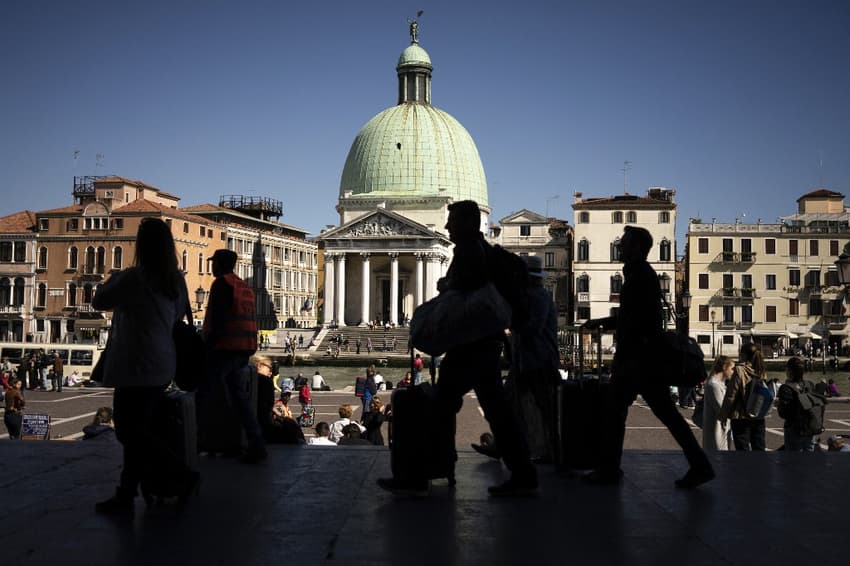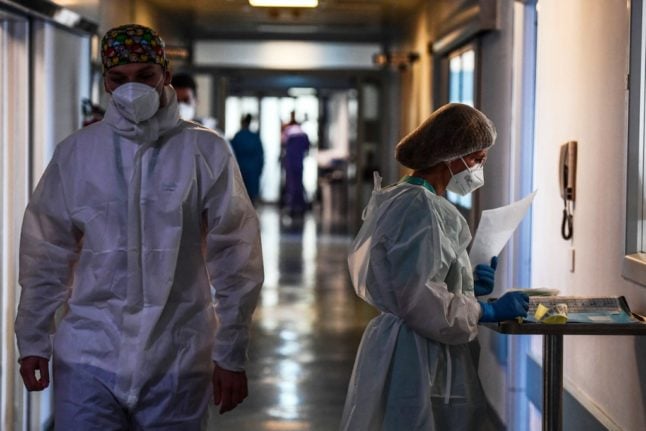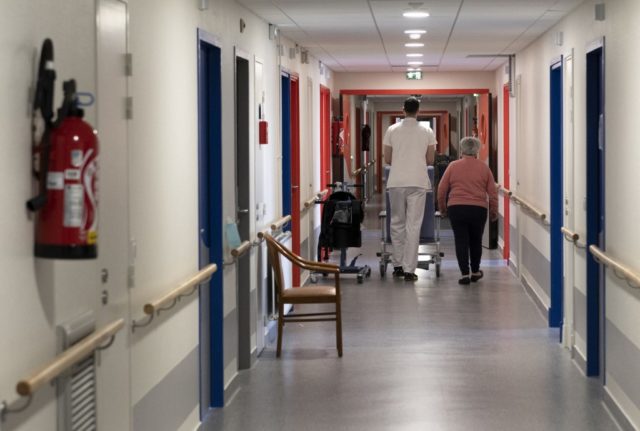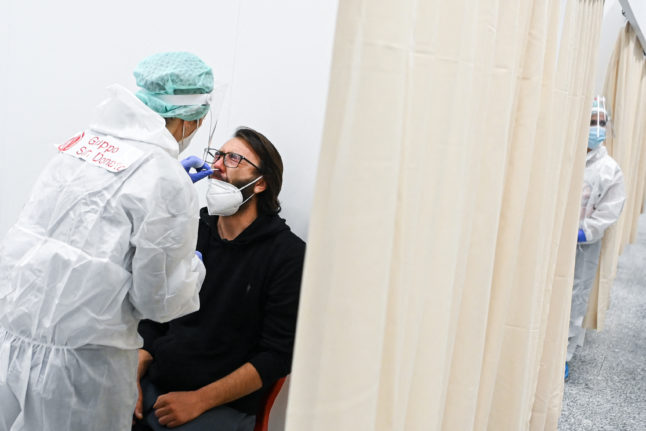At a glance: What are Italy's Covid-19 rules this autumn?

Italy has very few pandemic-related restrictions left, but there are still some rules you should be aware of.
After over two years of Covid-related social and health measures, there are currently very few restrictions in place across Italy.
But, as Italy’s head of state, Sergio Mattarella, warns that “the virus hasn’t been fully defeated yet” and “collective responsibility” is needed, there are still some rules you need to be aware of.
READ ALSO: Italy eases Covid measures ahead of new government
Whether you regularly reside in Italy or are simply planning to visit in the coming weeks, here’s a quick overview of Italy’s Covid rules for the autumn.
Travel to and within Italy
Travel to Italy for any reason, including tourism, is currently allowed from all countries.
As of June 1st, people are no longer required to show proof of Covid vaccination, recent recovery from the virus or a negative molecular or antigen test result in order to enter the country.
That was the last remaining Covid-related rule in place for travellers – the requirement for arrivals to complete an EU digital passenger locator form (dPLF) had been lifted on May 1st.
Masks
The requirement to wear FFP2 face masks on public transport (buses, trains, trams, ferries, etc.) lapsed on Friday, September 30th, after outgoing PM Mario Draghi chose not to renew the mandate in question.
However, Draghi and his cabinet did extend the requirement to wear face masks in all healthcare settings and care homes, with the rule now expected to expire on October 31st.
It’s worth noting that anyone refusing to comply with face mask rules can still face fines ranging from a minimum of €400 to a maximum of €1000.
READ ALSO: Why are so many Italians still wearing face masks in shops?

Those in healthcare setting and care homes in Italy must continue to wear masks until at least the end of October. Photo by Miguel MEDINA / AFP.
Though it’s no longer a requirement, the government also continues to advise people to wear masks in all crowded areas, including outdoors.
As for the private sector, all employees working in settings where social distancing is not practicable will be required to wear FFP2 face masks.
The above mandate should expire on October 31st, though a further extension cannot be ruled out at this moment in time.
Green passes
Italy no longer requires people to show proof of vaccination, recovery or a recent negative test result to access indoor settings or public venues.
That means you won’t need to show any form of health certificate in order to eat in a restaurant, visit a museum or use public transport.
However, if you wish to visit a friend or family member in an Italian hospital or care home you will need to produce proof of vaccination or recovery, or the negative result of a molecular or antigen test taken within 48 hours prior to your visit.
READ ALSO: What is Italy’s Covid vaccination plan this autumn?

Proof of vaccination, recent recovery or a negative Covid test is required for those visiting friends or family members in Italian care homes. Photo by Thierry ZOCCOLAN / AFP.
If you’re a foreign national holding a foreign health pass, the Italian government recognises proof of vaccination or recovery issued abroad, provided that it meets certain requirements.
For further information on the types of vaccines accepted in Italy, please see the following government memo.
Italian healthcare staff are still required to produce a valid ‘super green pass’ (i.e. the national health pass certifying that the holder has been fully vaccinated against Covid-19 or has recovered from it) to be able to work.
The above mandate is scheduled to expire on December 31st, with a further extension having already been ruled out by Marcello Gemmato, head of health policy for election winners Brothers of Italy.
Quarantine rules
Italy still requires anyone who tests positive for coronavirus while in the country to self-isolate, though the minimum isolation period was cut from seven days to five in early September.
In order to exit quarantine, the infected person must be symptomless (with the exception of symptoms relating to loss of taste or smell) for at least two days, and must test negative to a molecular (PCR) or rapid antigen test at the end of that period.

Quarantine and testing to release is still required for those who test positive for Covid in Italy. Photo by Piero Cruciatti / AFP.
Testing should be carried out at a registered pharmacy or testing centre. The results of home tests are not seen as valid for this purpose.
READ ALSO: How tourists and visitors can get a coronavirus test in Italy
Should the patient continue to test positive, they must remain in isolation until they get a negative test result. However, the maximum length of the self-isolation period has been cut to 14 days, down from 21.
The above isolation requirements apply to everyone, including those who are fully vaccinated against Covid or have recently recovered from it.
Finally, those who come into close contact with an infected person but do not show any symptoms are required to wear an FFP2 face mask both indoors and outdoors for the ten days following the day when the contact occurred.
Other restrictions
Italy no longer has any active restrictions on businesses’ opening times or capacity. However, individual businesses can still set different rules than those enforced at a national level.
Moreover, there are currently no restrictions on travel between regions, though local authorities have the power to impose their own measures at any time.
Italian health authorities continue to advise residents to respect social distancing when possible and wash their hands frequently.
For more information about how Italy’s Covid rules may apply to you, see the Italian health ministry’s website or consult the Italian embassy in your country.
Comments
See Also
After over two years of Covid-related social and health measures, there are currently very few restrictions in place across Italy.
But, as Italy’s head of state, Sergio Mattarella, warns that “the virus hasn’t been fully defeated yet” and “collective responsibility” is needed, there are still some rules you need to be aware of.
READ ALSO: Italy eases Covid measures ahead of new government
Whether you regularly reside in Italy or are simply planning to visit in the coming weeks, here’s a quick overview of Italy’s Covid rules for the autumn.
Travel to and within Italy
Travel to Italy for any reason, including tourism, is currently allowed from all countries.
As of June 1st, people are no longer required to show proof of Covid vaccination, recent recovery from the virus or a negative molecular or antigen test result in order to enter the country.
That was the last remaining Covid-related rule in place for travellers – the requirement for arrivals to complete an EU digital passenger locator form (dPLF) had been lifted on May 1st.
Masks
The requirement to wear FFP2 face masks on public transport (buses, trains, trams, ferries, etc.) lapsed on Friday, September 30th, after outgoing PM Mario Draghi chose not to renew the mandate in question.
However, Draghi and his cabinet did extend the requirement to wear face masks in all healthcare settings and care homes, with the rule now expected to expire on October 31st.
It’s worth noting that anyone refusing to comply with face mask rules can still face fines ranging from a minimum of €400 to a maximum of €1000.
READ ALSO: Why are so many Italians still wearing face masks in shops?

Though it’s no longer a requirement, the government also continues to advise people to wear masks in all crowded areas, including outdoors.
As for the private sector, all employees working in settings where social distancing is not practicable will be required to wear FFP2 face masks.
The above mandate should expire on October 31st, though a further extension cannot be ruled out at this moment in time.
Green passes
Italy no longer requires people to show proof of vaccination, recovery or a recent negative test result to access indoor settings or public venues.
That means you won’t need to show any form of health certificate in order to eat in a restaurant, visit a museum or use public transport.
However, if you wish to visit a friend or family member in an Italian hospital or care home you will need to produce proof of vaccination or recovery, or the negative result of a molecular or antigen test taken within 48 hours prior to your visit.
READ ALSO: What is Italy’s Covid vaccination plan this autumn?

If you’re a foreign national holding a foreign health pass, the Italian government recognises proof of vaccination or recovery issued abroad, provided that it meets certain requirements.
For further information on the types of vaccines accepted in Italy, please see the following government memo.
Italian healthcare staff are still required to produce a valid ‘super green pass’ (i.e. the national health pass certifying that the holder has been fully vaccinated against Covid-19 or has recovered from it) to be able to work.
The above mandate is scheduled to expire on December 31st, with a further extension having already been ruled out by Marcello Gemmato, head of health policy for election winners Brothers of Italy.
Quarantine rules
Italy still requires anyone who tests positive for coronavirus while in the country to self-isolate, though the minimum isolation period was cut from seven days to five in early September.
In order to exit quarantine, the infected person must be symptomless (with the exception of symptoms relating to loss of taste or smell) for at least two days, and must test negative to a molecular (PCR) or rapid antigen test at the end of that period.

Testing should be carried out at a registered pharmacy or testing centre. The results of home tests are not seen as valid for this purpose.
READ ALSO: How tourists and visitors can get a coronavirus test in Italy
Should the patient continue to test positive, they must remain in isolation until they get a negative test result. However, the maximum length of the self-isolation period has been cut to 14 days, down from 21.
The above isolation requirements apply to everyone, including those who are fully vaccinated against Covid or have recently recovered from it.
Finally, those who come into close contact with an infected person but do not show any symptoms are required to wear an FFP2 face mask both indoors and outdoors for the ten days following the day when the contact occurred.
Other restrictions
Italy no longer has any active restrictions on businesses’ opening times or capacity. However, individual businesses can still set different rules than those enforced at a national level.
Moreover, there are currently no restrictions on travel between regions, though local authorities have the power to impose their own measures at any time.
Italian health authorities continue to advise residents to respect social distancing when possible and wash their hands frequently.
For more information about how Italy’s Covid rules may apply to you, see the Italian health ministry’s website or consult the Italian embassy in your country.
Join the conversation in our comments section below. Share your own views and experience and if you have a question or suggestion for our journalists then email us at [email protected].
Please keep comments civil, constructive and on topic – and make sure to read our terms of use before getting involved.
Please log in here to leave a comment.